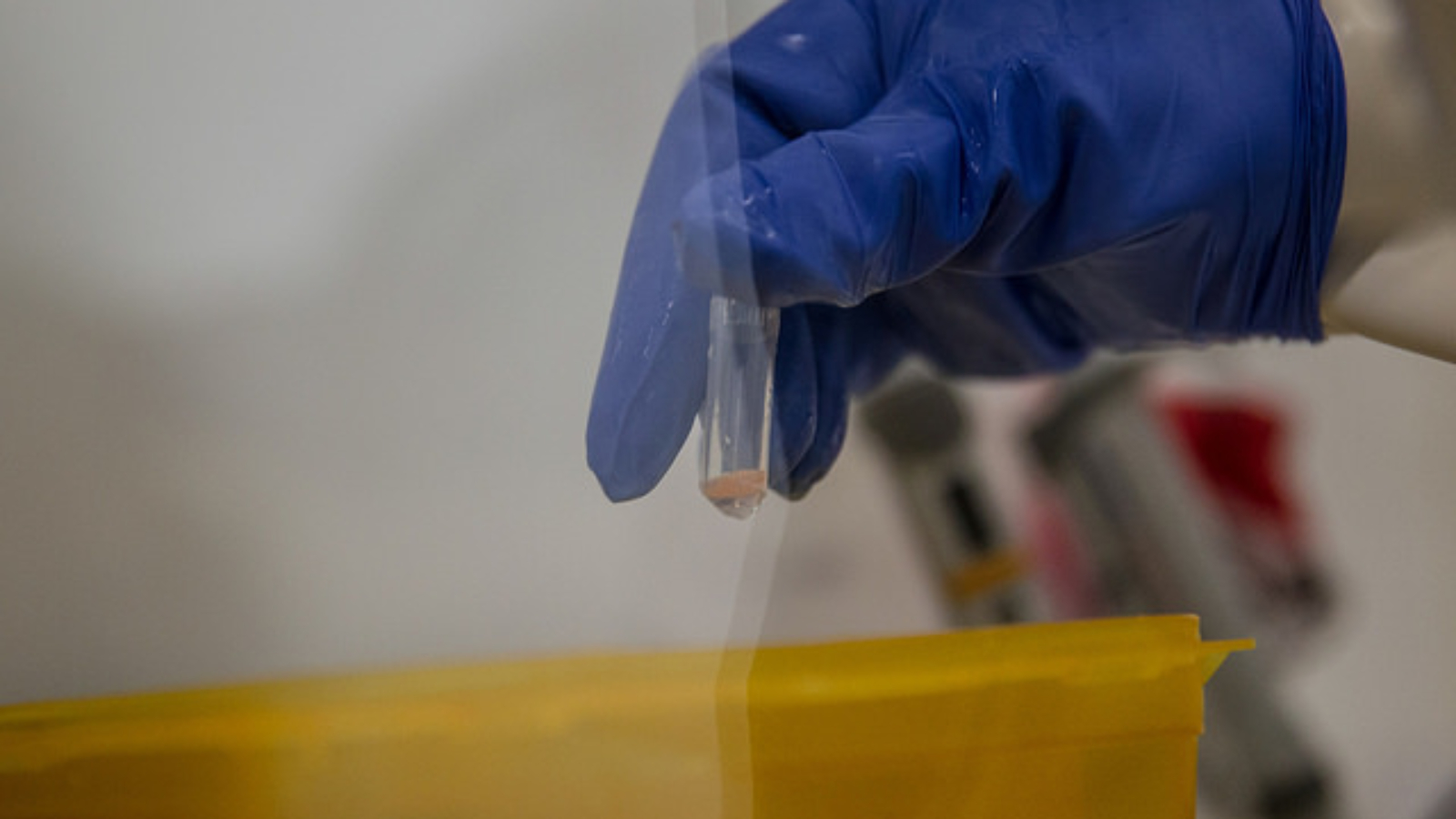This article was originally published by Ebola Deeply.
By Kate Thomas
Joseph Tahyor Jr. is a desk officer for the organization eHealth. He is based at the Liberia Institute for Biomedical Research, where he manages a database of Ebola patients’ names and test results in collaboration with the U.S. Army Medical Research Institute of Infectious Diseases (USAMRIID).
Ebola Deeply: What does your work involve?
Tahyor Jr.: I manage the data system in the lab. What I mainly came here to do is to see how best we can track patient samples from pick-up point to testing, and to make sure that every paper we receive has a lab number. I input information into the database. Before doing all this I have to decontaminate everything I touch. If it’s paper, I spray a solution of 10 percent bleach on it. After it dries up, I bring it here and enter it into the database. All of the information goes through me.
What we’re really doing is to see how we can track samples. Even if someone comes for research tomorrow, they can find out what happened to a particular sample. How did a particular person fare with Ebola? Did he survive? What type of sample – whole blood, for instance – did he provide? We can track all of this. We focus on information. We create some level of equilibrium between people and information.
Ebola Deeply: You’ve been inputting data of patient diagnoses, deaths and survivals since Oct. 2014. How large is the database at this point?
Tahyor Jr.: There are more than 2,000 names in the database. We have every single name of every single person we have tested for Ebola since then. We have some challenges; sometimes a sample will come without paperwork. Sometimes paper will come without samples. There are other partners working out there to make sure that these things are alright. We send results through to the Ministry of Health.
Ebola Deeply: There are currently five cases of Ebola in Liberia, as part of a new cluster after the country was declared Ebola-free in May. Are you still receiving many test samples from around the country?
Tahyor Jr.: We still receive around 40 to 50 oral swab samples each day from dead bodies, and about the same number of whole blood samples from living patients. Everyone is focusing on vigilance and surveillance. Health teams, clinics and funeral homes send us samples to test. Before, there were more. We were receiving hundreds of oral swab samples every day.
Ebola Deeply: What motivates you in your work, and what aspects of it do you find challenging?
Tahyor Jr.: My work is great. I want to guide the data of people affected by Ebola: their names, their place of living… It helps us trace which areas have been affected.
I’ve always lived in Liberia and I know my country very well. Before I went to college I worked as a taxi driver to support myself through school. I knew almost every part of Liberia, about 85 percent of the country. I went to college and studied IT, and then I worked as a medical records clerk at Firestone rubber plantation hospital. Later on, I moved into the Ebola response.
At the peak of the outbreak I worked seven days a week. I can get tired, I’m a human being. But I’m encouraged that other people, like USAMRIID, are coming to help my people. That motivates me a lot to do my work. It’s like, you are in a problem and somebody’s coming to help you out. You come to be on your feet.
******
******
Kate Thomas is a contributor to Ebola Deeply.
[Photo courtesy of UNMEER]
